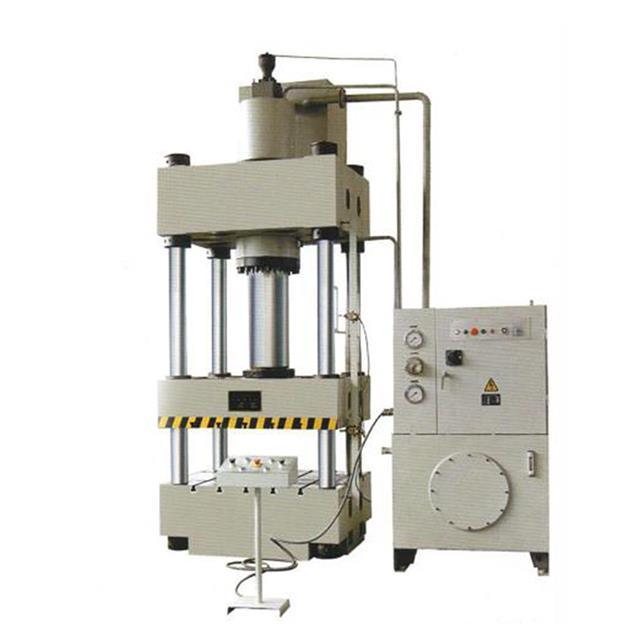How to reasonably use hydraulic oil in hydraulic press
Release Time : 2023-03-13 View Count : 次The hydraulic oil in hydraulic press is believed to be used, but if it is to be used reasonably, I think we should introduce the reasonable use of hydraulic oil in hydraulic press.
1. The system should also be cleaned before oil change. Before using the hydraulic oil for the first time, the hydraulic system must be thoroughly cleaned. When replacing the hydraulic oil of the same type, the new hydraulic oil should also be used for flushing 1-2 times.
2. Hydraulic oil cannot be mixed at will. If a certain brand of hydraulic oil has been determined, it must be used separately. Without the consent of the hydraulic equipment manufacturer and without scientific basis, it is not allowed to mix with hydraulic oil of different viscosity grades, or hydraulic oil of the same viscosity grade but not of the same manufacturer, or other types of oil.
3. Pay attention to the good sealing of the hydraulic system. The hydraulic system using hydraulic oil must be strictly sealed to prevent leakage and the mixing of various external pollutants.
4. Change the hydraulic oil in time according to the oil change index. The hydraulic oil in the hydraulic press should be regularly sampled and tested. Once the physical and chemical indicators in the oil meet the oil change indicators, the oil should be changed.
What are the hazards of hydraulic oil pollution
When the hydraulic oil is seriously polluted, it will directly affect the working performance of the hydraulic system, make the hydraulic pump often fail, and shorten the service life of the hydraulic components. These hazards are mainly caused by particles in the dirt. As for the hydraulic components, because these solid particles enter into the components, the sliding part of the components will be more worn, and the throttle hole and damping hole in the hydraulic components may be blocked, causing the valve core to be stuck, thus causing the failure of the hydraulic system. The mixing of water and air will reduce the lubricating capacity of the hydraulic oil and accelerate its oxidation and deterioration, resulting in cavitation, accelerating the corrosion of the hydraulic components, and causing the vibration and creep of the hydraulic system.









